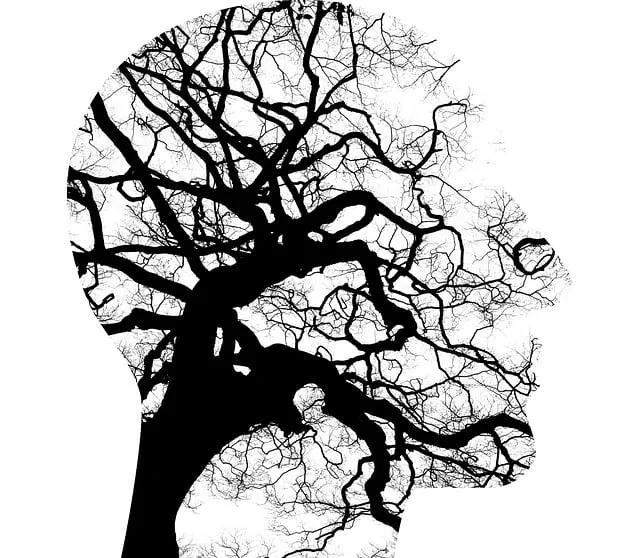The Lafayette Kaiser Permanente (LKP) mental health department is a leader in trauma care, offering specialized services that employ evidence-based therapies like CBT and EMDR. With comprehensive patient-centered approaches, LKP focuses on emotional intelligence enhancement and community engagement through outreach programs. Their multi-faceted support includes safe communication strategies and increased access to services, promoting healing and positive outcomes for trauma survivors.
Trauma is a prevalent issue affecting individuals across various demographics, and access to adequate support services is crucial for healing. This article explores the essential role of trauma support in healthcare settings, with a specific focus on the Lafayette Kaiser Permanente Mental Health Department and its comprehensive resources. We delve into understanding trauma’s far-reaching effects and present effective strategies for caregivers, ensuring a holistic approach to recovery. By examining these key aspects, we aim to highlight the department’s significance as a game-changer in trauma care.
- Understanding Trauma and Its Impact: A Basis for Support Services
- Lafayette Kaiser Permanente Mental Health Department: Resources and Reach
- Effective Trauma Support: Strategies and Best Practices for Caregivers
Understanding Trauma and Its Impact: A Basis for Support Services

Understanding trauma is a fundamental step in establishing effective support services. Trauma, defined as a deeply distressing or disturbing experience, can have profound and long-lasting effects on an individual’s mental health and overall well-being. It can manifest in various forms, such as post-traumatic stress disorder (PTSD), anxiety, depression, and emotional dysregulation. The impact of trauma is not limited to the survivor but can also affect their support networks and communities.
The Lafayette Kaiser Permanente mental health department plays a pivotal role in addressing this issue by providing specialized services tailored to meet the unique needs of trauma survivors. Their expertise lies in offering evidence-based treatments, including cognitive behavioral therapy (CBT) and eye movement desensitization and reprocessing (EMDR), which have proven successful in helping individuals process traumatic memories and develop coping strategies. By integrating these advanced therapies, the department ensures that patients receive comprehensive care, fostering a path towards healing and recovery. Furthermore, public awareness campaigns on trauma and its effects can significantly contribute to burnout prevention strategies for healthcare providers, promoting positive thinking and resilience within the medical community.
Lafayette Kaiser Permanente Mental Health Department: Resources and Reach

The Lafayette Kaiser Permanente Mental Health Department stands as a beacon of hope and support for individuals navigating trauma. With a dedicated team of professionals, they offer a range of resources tailored to address various mental health needs. Their reach extends far beyond traditional therapy, encompassing innovative programs designed to enhance emotional intelligence and provide comprehensive care.
This department’s strength lies in its ability to integrate modern practices into treatment plans, ensuring that patients receive up-to-date strategies for managing trauma. From individual counseling sessions to group support networks, they cater to diverse preferences and requirements. Moreover, the Lafayette Kaiser Permanente Mental Health Department actively promotes mental health education programs, empowering both patients and professionals through knowledge and skill development in risk management planning.
Effective Trauma Support: Strategies and Best Practices for Caregivers

Effective trauma support requires a multifaceted approach, and caregivers play a pivotal role in this process. The Lafayette Kaiser Permanente mental health department has developed innovative strategies to cater to individuals affected by traumatic experiences. One key practice is incorporating Communication Strategies that foster an open and non-judgmental environment. This includes active listening, empathy, and clear expression of support, which can significantly aid in the healing process. Caregivers are trained to recognize and respect individual boundaries while encouraging clients to share their stories at their own pace.
Moreover, the Community Outreach Program Implementation has been instrumental in expanding access to trauma support services. By engaging with local communities, schools, and organizations, the mental health department increases awareness about available resources and breaks down barriers to care. This strategy not only reaches a wider audience but also promotes a sense of collective responsibility in supporting mental wellness. Effective outreach programs can ensure that individuals who have experienced trauma receive timely and culturally sensitive interventions, ultimately contributing to more positive outcomes.
Trauma support services are vital for healing and recovery, and the Lafayette Kaiser Permanente Mental Health Department stands out as a beacon of hope with its extensive resources and reach. By understanding trauma’s profound impact, this department offers effective strategies and best practices tailored to caregiver roles. With a focus on accessible care, their provision ensures that individuals affected by trauma can navigate their journey towards healing and resilience. The Lafayette Kaiser Permanente mental health department’s commitment to addressing this critical need is evident in its dedication to supporting the well-being of its community.






